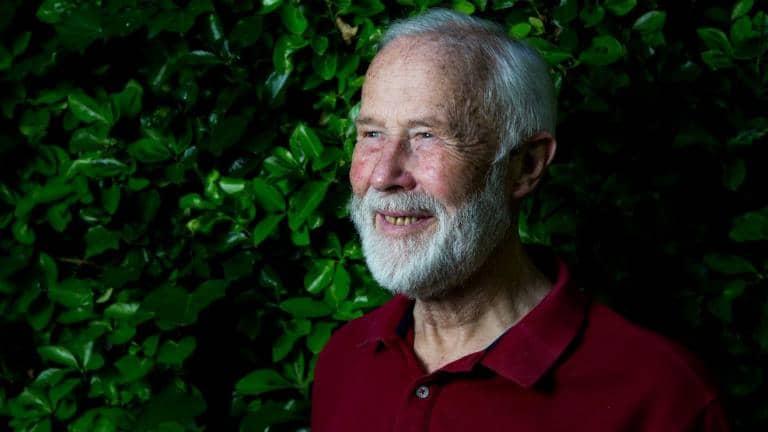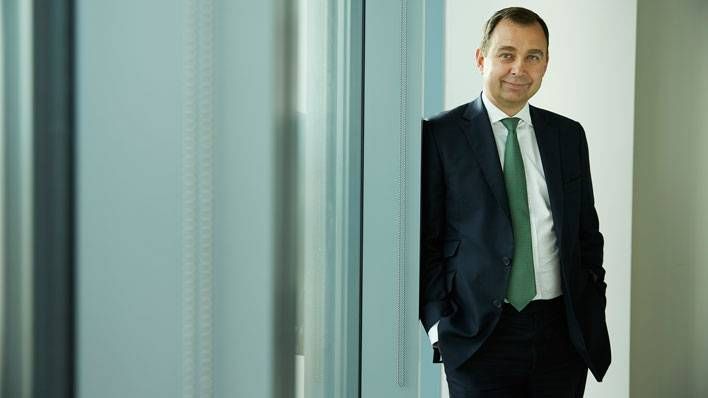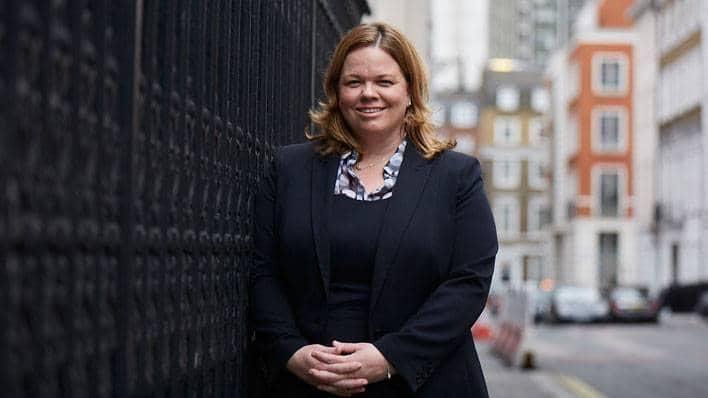
Leading Questions: Sir Chris Bonington
Sir Chris Bonington, 83, started climbing as a teenager in the 1950s and went on to become the UK's most celebrated mountaineer

Ian Rand joined the British Army in 1988, and spent 12 years serving in Norway, Bosnia and Kosovo. He left the army in 2000 to move into banking and joined Barclays as COO for Coverage in 2008, before becoming CEO for Business Banking in spring 2016.
What have you learnt about leadership?
First of all, it’s hard. Anyone who thinks there are perfect leaders who don’t have to work hard, and who never make mistakes, is simply wrong. So the first thing is you have to know is that as a leader, you need help. If I think back to every time I’ve made a mistake as a leader it always comes back to: ‘I didn’t ask anyone for help or advice’.
So that is the fundamental thing, and I think quite often people think that because they’re a leader, they have to make sure they don’t show weakness, they have to demonstrate that they have full grasp of a situation. But that is exactly the time that you have to ask for help and take advice.
Amongst my colleagues we are in and out of each other’s offices constantly, saying: ‘What would you do about this, what would you think about this?’ That is the number one lesson for me: it’s hard, acknowledge it’s hard and always look for help and advice. It also helps hugely if, as part of that advice, you listen to a true diversity of views.
Early in my career in banking, I found that coming from 12 years in the military, I had a certain viewpoint on life based on working in a predominantly white, straight, male environment. So when I joined banking I had a lot to learn. I was very lucky to work closely with a number of senior women who were excellent in helping me hear perspectives that were frankly new to me.
That taught me the value of having a diverse team of advisors who you can turn to and say: ‘I was about to do this, does that sound OK?’ That’s incredibly important.
This keys into Barclays current corporate philosophy. Has Barclays changed?
I think Barclays is changing. It’s been changing for a while and it continues to change. The landing of the values was a very powerful moment for many colleagues. Then the arrival of Jes Staley: in his first couple of weeks he did some presentations where he talked about his brother and his family life and he showed a vulnerability, honesty and openness which really resonated with colleagues. Colleagues still talk about that, and how different that felt from what they expected to hear from such a senior leader.
What elements of military thinking have you brought over to leadership roles in the City?
There are three things I learned in the military that I carried forward.
The first was how to manage, and lead, through change and uncertainty. I think that one of the reasons that military thinking has become of interest in banking is that we feel in some ways like we’re in a continual battle, dealing with factors outside of our control – much like a battle. The military has great techniques to help leaders manage through uncertainty, and to stay focused on what they need to deliver.
The second is how to present complex issues in an easy to understand way that drives decision making. I remember a time, not long after I left the military, when I was working for JP Morgan and was asked to look at a complex issue. So I did, and for lack of any other way of doing it, I wrote a paper on the problem, exactly as I would in the military.
It said: “Here’s the situation. Option one – pros and cons. Option two – pros and cons. Recommendation.” Three slides summarising the issue in a way anyone could understand and giving a recommendation. They thought this was incredible! But that’s just how the military teaches you to think – and I try to keep to that discipline.
The third thing is about constant learning. I used to change jobs every 12 to 18 months. So I would spend a year in Norway thinking about issues unique to that region, then I’d spend six months in Bosnia working on something completely different. So you become very good at learning fast, taking in new information and adapting to your new environment.
Being willing and able to learn new things has served me well; for example in this job I am doing a lot of media work which is new to me, so being ready to listen to advice, train and practise has been very important.
Do you get itchy feet being in the same sector for more than 18 months now?
No. Because the challenges in the job change so much every day!
What was your best day at work?
The best day was when I was asked to become CEO of Business Banking, because for a long time I have worked as a COO and supported great leaders and learnt from them, and I felt I was ready to take on a leadership challenge. To be given this responsibility was both the best and perhaps one of the more frightening days of my career.
How do you unwind?
I am passionate about work-life balance. I genuinely believe that the best decisions are made when people are relaxed and happy, and the worst decisions when they’re tired and stressed; that’s certainly something you learn in the military. So I make sure I do something fun at least one evening a week, and I try and schedule my week so I can work from home sometimes.
I think Dynamic Working is something that we need to be able to do at all levels, and for all kinds of reasons, but many people who could really benefit from it are reluctant to ask. However, if I and other senior leaders can do it, everyone can.

Sir Chris Bonington, 83, started climbing as a teenager in the 1950s and went on to become the UK's most celebrated mountaineer

Kathleen Britain joined Barclays in 2005 and was appointed Head of Charities for Barclays in 2016

Chi-chi Nwanoku is the founder of the Chineke! Orchestra and was named ‘Person of the Year 2016’ at the Barclays-sponsored Black British Business Awards

Raheel Ahmed joined Barclays in 2015 as Head of Mortgages and Consumer Lending, before moving in March 2017 to his new role as Head of Omnichannel and Customer Experience